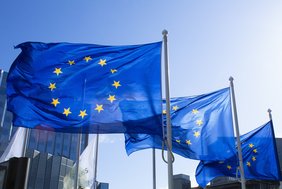Whether it is the distribution of refugees, pandemic or Russia’s new course, the actors of the European Union are consistently facing new, global challenges. Due to that, the EU as a peace project and a community sharing the same values starts to crumble. Uncertainty and the lack of trust in EU’s problem-solving abilities increases – even amongst young people.
Experiencing the EU through play
How can cohesion between EU member states succeed? Who is allowed to live in peace and security in Europe – and who is not? How can the EU meet future challenges in peace and security in an increasingly globalised and polarised world? The so-called Escape Game tries to give answers to these questions. Therefore, the Institute for Peace Research and Security Policy at the University of Hamburg (IFSH) and the foundation Bundeskanzler-Helmut-Schmidt-Stiftung (BKHS) started a joint project to develop such an Escape Game.
This game intends to playfully impart knowledge about the EU as a peace project, as a security guarantor and a community of shared values, and to test hands-on skills for democratic action. The overall aim of this project is to get pupils interested and enthusiastic about political processes in Europe. This game combines innovative methods of educational knowledge transfer and current research issues on peace and security orders. Dr Hendrik Hegemann and Dr Holger Niemann from IFSH are involved in the planning, implementation and content design of the game. The BKHS coordinates the project. The project is funded by the foundation ZEIT-Stiftung.
Target group: Hamburg’s middle and high school students
Escape Games usually work like this: a team has to solve a main task within a given time. Therefore, participants receive hints and need to collaborate to solve the puzzle, for example decoding codes or finding objects. The game aims primarily at pupils aged between 14 and18 years in the Hamburg metropolitan region. The game combines fun, knowledge and hands-on skills and is a low-threshold access to education. The game material, a detailed manual for the implementation of the game by teachers, and additional didactic material will be available for free.
The first test and game runs are planned for spring 2023.
This project is part of the horizontal research focus “doing peace!” at IFSH. Please click here to find out more about “doing peace!”.
